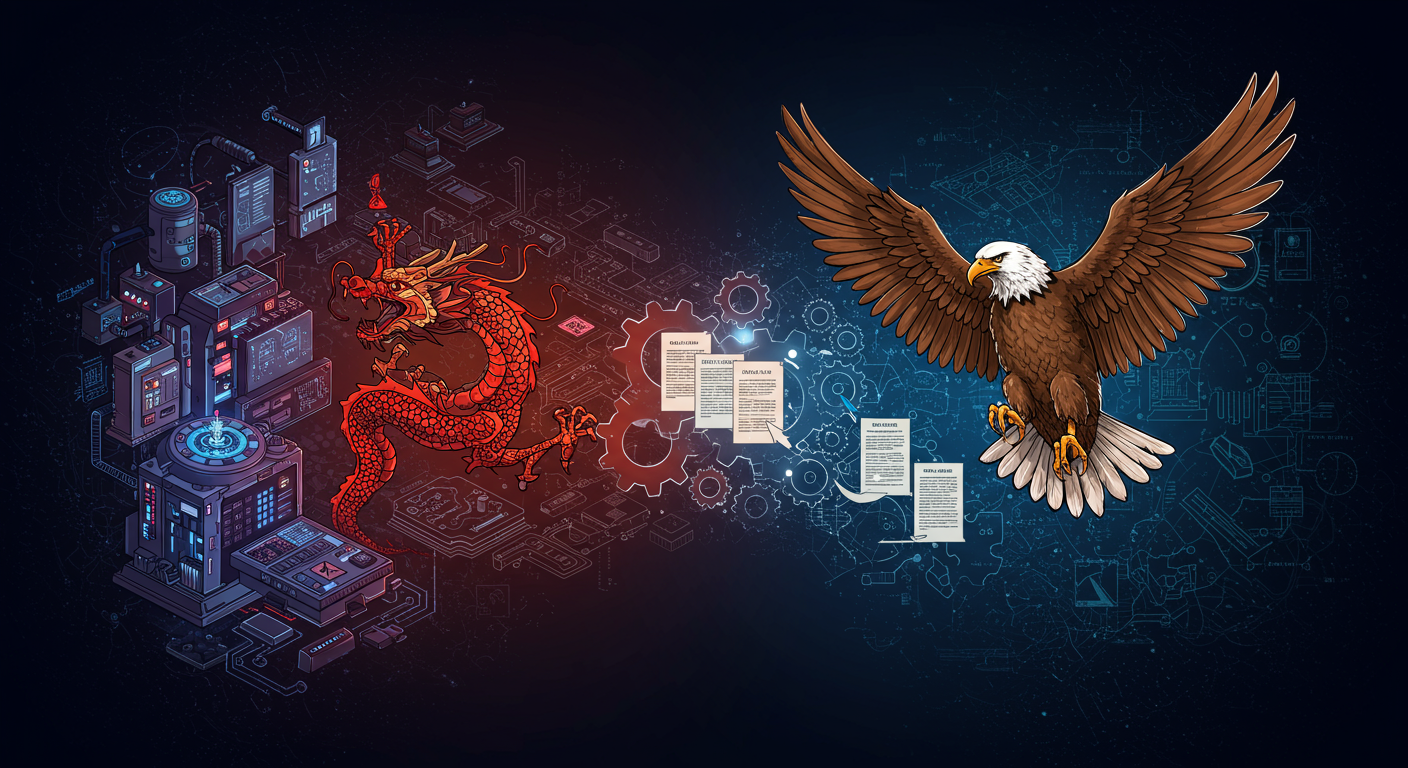
The recent remarks from Nvidia CEO Jensen Huang (jhuang@nvidia.com), initially stating that “China is going to win the AI race,” and his subsequent clarification, have sparked a familiar and crucial debate about the future of artificial intelligence. As reported by Dylan Butts for CNBC, Huang softened his stance to say, “China is nanoseconds behind America in AI. It’s vital that America wins by racing ahead and winning developers worldwide” Nvidia's Jensen Huang softens his ‘China will win the AI race’ remark to FT.
This oscillating sentiment highlights the intense geopolitical competition underpinning AI development. Huang's earlier warning, delivered on the sidelines of the FT’s Future of AI Summit, pointed to China’s lower energy costs and looser regulations as advantages, contrasting them with what he described as Western “cynicism” and “excessive regulation.” This perspective underscores a fundamental tension: the pursuit of innovation versus the imperative of responsible deployment.
I’ve long observed China’s strategic vision for global connectivity and control, a pervasive ambition that extends far beyond just AI. My earlier writings, such as "China wants to connect EVERY THING" China wants to connect EVERY THING, highlighted their methodical approach to integrating various sectors and resources to bolster their influence. This historical context makes it clear that their push in AI is part of a much larger, coordinated plan.
The complexities of this race are further illuminated by the actions of political leaders. We saw Jensen Huang lobbying against U.S. export restrictions, engaging with President Donald Trump in July, which initially led to eased chip curbs. However, this progress was short-lived, with Beijing subsequently blocking Nvidia's chips, citing a national security review, effectively reducing Nvidia's market share in China to zero. The lack of concessions on chip policy during President Trump's meeting with Chinese President Xi Jinping further emphasized the high stakes involved in these discussions.
San José State University's Professor Ahmed Banafa (ahmed.banafa@sjsu.edu) has also consistently brought attention to the global dynamics of AI. He has highlighted that a significant portion of the world’s AI research and development is concentrated in a mere 100 companies, predominantly in the United States and China. Professor Banafa’s insights on "sovereign AI"—where nations develop and manage their own AI systems for independence and security—resonate deeply with the current climate, noting that countries like Saudi Arabia and the UAE are also rapidly investing to catch up Prof. Ahmed Banafa – Global Race for Sovereign AI. He has also stressed the need for global AI governance and cooperation Prof. Ahmed Banafa – US and China Lead AI Efforts.
The core idea Hemen wants to convey is this — take a moment to notice that I had brought up this thought or suggestion on the topic years ago. I had already predicted this outcome or challenge, and I had even proposed a solution at the time. Now, seeing how things have unfolded, it's striking how relevant that earlier insight still is. Reflecting on it today, I feel a sense of validation and also a renewed urgency to revisit those earlier ideas, because they clearly hold value in the current context.
My past blogs have consistently advocated for a thoughtful, international approach to AI governance. When Rajeev Chandrasekhar, India's Minister of State, spoke about establishing guardrails for the AI sector, I echoed the sentiment that piecemeal efforts wouldn't suffice. In "Thanks Rajeevji for giving glimpse of" Thanks Rajeevji for giving glimpse of, I proposed "Parekh's Law of Chatbots," emphasizing the necessity for:
- Coordinated, consensual regulation by all stakeholders.
- Gradual evolution of planned regulations.
- Embedding fundamental principles into law.
- Clear responsibility for platforms and AI developers.
- Built-in controls and accountability for misuse.
- Prior testing and approval by an International Authority for Chatbots Approval (IACA).
Similarly, President Joe Biden's administration has worked with leading tech firms like Amazon, Google, Meta, Microsoft, and OpenAI to establish voluntary AI safeguards, as I noted in "AMIGO-MA bids well for Biden" AMIGO-MA bids well for Biden. Science Advisor to President Joe Biden, Arati Prabhakar, has also called for collaboration between the U.S. and like-minded countries, including India, to shape the course of AI. Even UN Secretary-General António Guterres (sgcentral@un.org) has highlighted the United Nations as the ideal place to adopt global standards and suggested a new UN body for AI governance.
India's role, as discussed by Jensen Huang (jhuang@nvidia.com) and Mukesh Ambani in my blog "Our Own AI Systems : On the Way" Our Own AI Systems : On the Way and "Exporting AI Innovations" Exporting AI Innovations, further reinforces that the AI landscape is not a binary contest. India's potential to become a global AI powerhouse by exporting intelligence rather than just labor, and its efforts to lead in framing a global AI regime, as highlighted in my blog "India taking lead in framing global regime" India taking lead in framing global regime, demonstrate the multifaceted nature of this technological frontier.
The real "AI race" isn't simply about who develops the most powerful chips or achieves breakthroughs first. It's about who establishes the most robust, ethical, and globally collaborative frameworks to ensure AI benefits all of humanity, rather than becoming a source of instability. My consistent advocacy for international oversight and principled development remains more pertinent than ever.
Regards,
Hemen Parekh
Of course, if you wish, you can debate this topic with my Virtual Avatar at : hemenparekh.ai






No comments:
Post a Comment